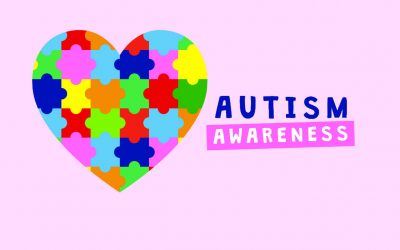Reflections on an Autistic Childhood
Article By: Gyasi Burks-Abbott
Article Date: 08/31/2010
When my mother went into labor, she was watching an episode of the old television series ‘Mission Impossible,’ a portent perhaps of the impossible mission she was about to embark upon’raising an autistic child back in the 70’s and 80’s when understanding of the condition was even more in its infancy than it is today. In fact, I was never technically an autistic child; the closest I ever came to being considered autistic was with a diagnosis of autism residual state at age eleven, which basically declared that I had mostly recovered from the disorder. But, of course, as we know today, the condition is life-long, and when I was eighteen, I was given a definitive, unequivocal diagnosis of infantile autism. But before that happened, I was labeled with conditions as divergent as mental retardation, hyperactivity, and social phobia. Meanwhile, regardless of what was wrong with me, I still needed to be socialized and educated.
A psychiatrist once suggested that I was lucky to have grown up without the autism label–his reasoning being that there were no limits placed on what I could or could not achieve. While I value the clarity of having a concrete diagnosis, and I would prefer to have skipped all the misdiagnoses; I think there is some truth in what that psychiatrist said. For the most part, I was raised as a normal child and expected to behave normally. Where I did have problems, my mother had to rely on her own resourcefulness and interventions that would aid in the development of any child.
To counter my tendency to walk like a duck, my mother placed a book on my head and had me practice walking across the living room. To encourage me to read, an activity that I found laborious and my special education teachers felt I would never master, my mother always made sure I was enrolled in our local library’s summer reading program; she also provided me with books on my favorite subjects To keep me socially and physically active, despite having few to no friends, my mother supported my involvement in a number of extra-curricular activities. Going camping with the Boy Scouts, for instance, ensured that I was rarely without something to do on the week-ends; and achieving the rank of Eagle Scout gave me a sense of self-worth as it also taught me important skills along the way. I also learned a lot about the world from my mother’s discussions of current events, movies, and TV shows.
As an adult I can look back and see that my mother’s Mission: Impossible has been rendered into a Mission: Accomplished. Contrary to early predictions that I would never make it beyond the sixth grade, I have a Master’s degree. Equally important, my social skills are such that no one would ever detect autism; the most they might suspect is introversion. Certainly, I am not a finished product. I will continue to develop.


